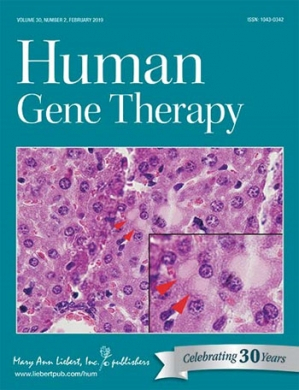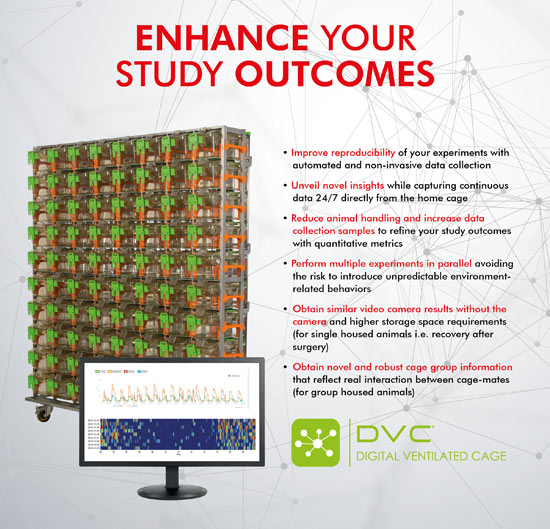

HUMAN GENE THERAPY platform, from Mary Ann Liebert Inc. Publishers, presents an extremely interesting WEBINAR on DVC®, titled "Home-Cage Monitoring 24/7: Improving Research Reproducibility and Outcomes", September 25, 2019, 8:00 am PT, 11:00 am ET, 17:00 CET.
A live Q&A session will follow the presentations, offering you a chance to pose questions to expert panellists.
The webinar, with well know speakers from the Scientific Community, aims to considers practical options to achieve better research reporting and reproducibility while reducing stress in lab mice. Participants will learn about recording animal data in their home cage 24/7, assessment of environmental conditions for animal research models and next steps to ensure more rigorous reporting. The Webinar will review historical concerns and contemporary issues going forward. Recent conferences deeply discussed issues related to have included much discussion on research reproducibility and opportunities for improvements.
 The Webinar will underline how environmental factors, Lab Animal Facilities and husbandry practices, are highly variable, are under-reported and often overlooked as contributors to experimental variation, and how this information is rarely shared or requested.
The Webinar will underline how environmental factors, Lab Animal Facilities and husbandry practices, are highly variable, are under-reported and often overlooked as contributors to experimental variation, and how this information is rarely shared or requested.
The Webinar will uncover how PIs are using novel technologies to acquire the environmental data and individual cage data emphasizing repeatability and rigor. In the webinar, it will be emphasized how is possible today to capture and record animal data in their home cage 24/7 with new home cage monitoring systems and how this it represents a revolutionary milestone for experimental research.
The Webinar will present examples of the practical applications of digital transformation, within a unit, and across a global organization, and its effects on study replicability, husbandry impacts on reproducibility and data consistency. While “meets Guide standards” is the “company line”, the details of daily care vary between institutions. Differences in cage components, housing density, cage changing frequency and practices are all recognized to impact animal development, physiology, and behaviour. Suggestions to improve reproducibility of rodent research will be presented. A panel discussion based on audience questions will end the session.
The link to participate to the webinar is the following: https://www.workcast.com/register?cpak=8917513340246234